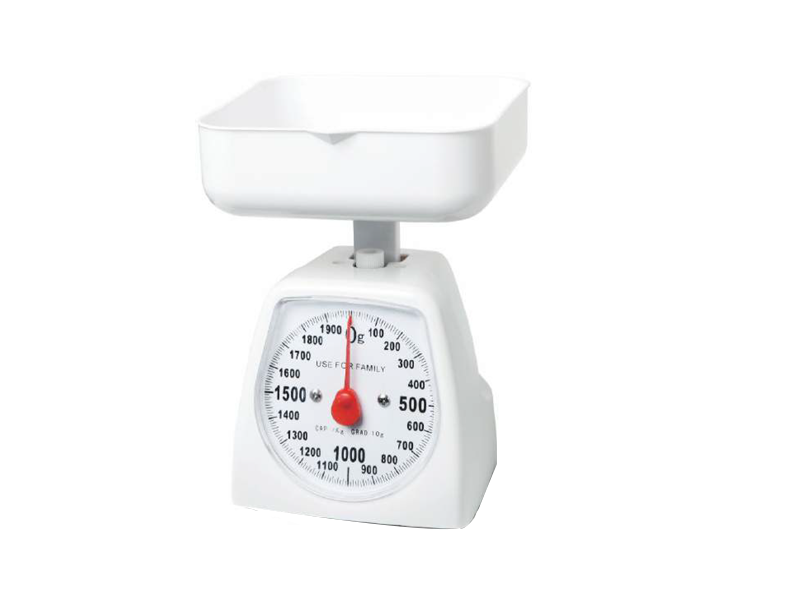In today's fast-paced world, where digital technology r […]
In today's fast-paced world, where digital technology reigns supreme, it's easy to overlook the timeless elegance and reliability of mechanical scales. These traditional measuring instruments have been used for centuries, providing a level of precision that is still unparalleled in many respects. While modern electronic scales offer convenience and speed, there is something captivating about the craftsmanship and artistry involved in mastering measurements with mechanical scales.
Mechanical scales have a rich history that dates back to ancient civilizations. From the simple balance scales of the Egyptians to the intricate beam scales of the Middle Ages, these tools have played a vital role in commerce, industry, and everyday life. They embody the principles of physics and the delicate balance between weight and equilibrium.
One of the fundamental advantages of mechanical scales lies in their direct mechanical connection to the object being weighed. Unlike electronic scales, which rely on sensors and complex algorithms, mechanical scales translate the force of gravity into a visual and tangible result. This connection creates a unique sense of engagement and involvement in the measurement process, turning it into an art form.
To master measurements with mechanical scales, one must first understand the components and principles at play. The heart of any mechanical scale is the weighing platform, which supports the object being weighed. Whether it's a metal pan or a platform with a hook, this element forms the foundation for accurate measurements.
The most recognizable feature of mechanical scales is the beam or lever system. This mechanism consists of a central pivot point with two arms, one on each side. The object to be weighed is placed on one side, while known weights are added to the opposite side to achieve equilibrium. The balance point, where the beam remains level, indicates the weight of the object. Achieving this equilibrium requires finesse and a keen eye for detail.
Another critical element in mastering measurements with mechanical scales is the set of weights used. These weights, often made of brass or other metals, must be precisely calibrated to ensure accurate results. They come in a range of denominations, allowing for precise adjustments and measurements at various scales. The careful handling and placement of weights demand a steady hand and an appreciation for the subtleties of the process.
While mechanical scales offer a level of precision that is difficult to match, they also require regular maintenance and calibration. Over time, factors such as wear and tear, humidity, and temperature fluctuations can affect their accuracy. To maintain the integrity of these measuring instruments, regular cleaning, lubrication, and adjustment are necessary. The process of calibrating a mechanical scale can be seen as a ritual, a way of paying homage to the craftsmanship and tradition it represents.
In a world obsessed with speed and automation, there is something deeply satisfying about slowing down and engaging with the tactile experience of using a mechanical scale. It connects us to a time when craftsmanship and attention to detail were highly valued, and measurements were a labor of love. The art of precision shines through in every delicate adjustment, in every moment of stillness when the beam settles, and in the final revelation of weight.
Mastering measurements with mechanical scales is not simply about obtaining accurate results; it is about embracing the beauty of the process itself. It is an art form that allows us to appreciate the harmonious relationship between man, machine, and the laws of nature. So, the next time you encounter a mechanical scale, take a moment to savor the experience and marvel at the artistry involved in achieving true precision.

Mechanical Kitchen Scale KCZ-001
Function:
1. Customized dial printing
2. Mechanical indicator
3. Automatic or manual zero adjustment
4. Food safe bowl for easy to weight
5. Bowl volume around 1200ml
Further Information
1. Custom logo can be printed on the dial.
2. Different color is welcome.
3. Custom gift box can be supplied.
4. Normally FOB Ningbo, another delivery port is welcome.
5. Normally T/T 30% deposit, then balance against the B/L.
6. Normally, it need around 60 days after receiving your deposit payment. The specific delivery time depends on the items and the quantity of your order.
7. We can supply you sample, but the customers have to pay the sample cost and the courier cost.
8. All the scales are tested before delivery.